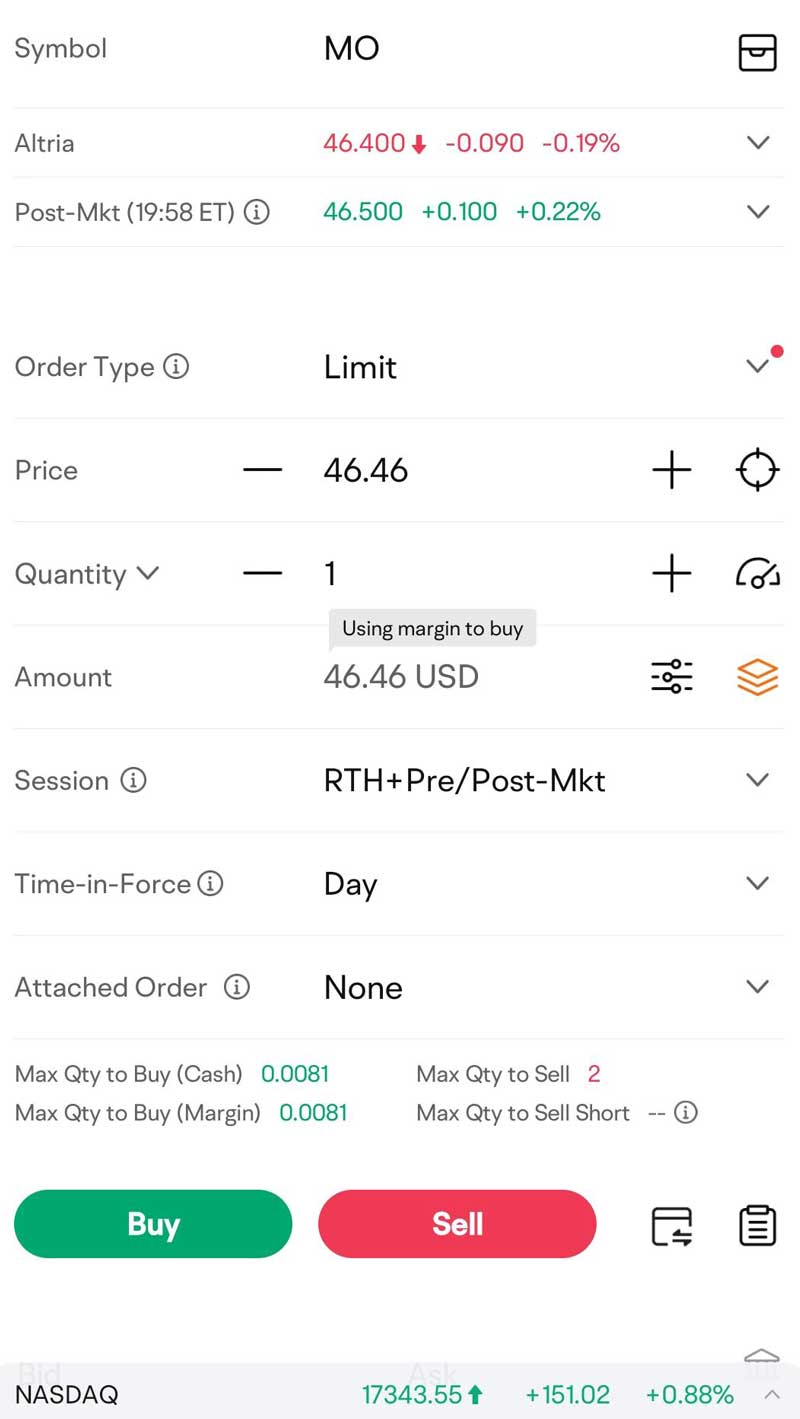Overview of Moomoo, Citi Self Invest, and Wealthfront
Citi Self Invest is owned by one of the largest banks in the world. But does that make it better than Moomoo and Wealthfront for investing? Let’s find out.
Fees
| Broker Fees |
Stock/ETF
Commission |
Mutual Fund
Commission |
Options
Commission |
Maintenance
Fee |
Annual IRA
Fee |
|
Moomoo
|
$0
|
na
|
$0 per contract
|
$0
|
$0
|
|
Wealthfront
|
$0
|
na
|
na
|
0.25%
|
0.25%
|
|
Citibank
|
$0
|
$0
|
na
|
$0
|
$0
|
Services
Available Investments
In brokerage accounts, Citi Self Invest offers trading in stocks, ETFs, and mutual funds. Moomoo doesn’t have mutual funds but offers stocks, ETFs, options, closed-end funds, and Chinese stocks. Wealthfront’s stock-trading account has a limited list of stocks.
For managed accounts, Wealthfront specializes in robo-investing with low-cost ETFs. Citi offers Citi Wealth Builder, an automated program, and a Wealth Management service that includes human advisors. There’s also Wealth Builder Plus, an automated program with human financial planners.
Moomoo doesn’t offer investment-advisory programs or tax-advantaged accounts beyond individual taxable accounts. Citi Self Invest and Citi Wealth Builder are similar. Wealthfront offers individual, joint, 529, and trust accounts (though the stock-investing account is individual-only).
Winner: Citi
Websites
Wealthfront’s website is designed to be simple, and it is. You can manage both robo and stock investing accounts easily. Setting up purchases of securities is straightforward. The stock-investing system doesn’t have advanced trading tools because Wealthfront executes the trades.

At Citi Self Invest, the account owner submits trades, and the website has a decent order ticket with market, limit, and stop orders. You can add qualifiers like all or none and fill or kill. However, the charting tools are basic with no advanced features.

Moomoo’s website doesn’t have trading tools, but it’s strong in market and security research. Asset profiles are rich with resources, including option chains, financial statements, price targets, and analysts’ trade recommendations. There’s also a paper-trading feature for practice.

Winner: Moomoo
Mobile Apps
Wealthfront and Citi Self Invest offer simple trading and account management on their mobile apps. Both apps include cash-management tools. The Citi app mirrors the website’s basic charting and order entry features and syncs with a watchlist. It provides trade data like previous close and daily price range.

Moomoo’s app, on the other hand, offers advanced live trading with many sophisticated tools. The order form includes eight trade types, such as trailing stop limit and market if touched. The app’s charting tools are robust, with overlays, trend projections, drawing tools, and technical studies. You can rotate the graph horizontally for better viewing.

Winner: Moomoo
Desktop Software
Moomoo’s desktop software provides advanced trading features similar to its mobile app. During testing, we found it powerful and user-friendly, offering:
- 12 order types
- Syncing watchlists with the mobile app
- Simulated trading
- Level II quotes
- Time & sales data
- Quant strategies
- Social networking
- Paperfolio, a tool for analyzing simulated investments
Wealthfront and Citi Self Invest do not offer desktop software.
Winner: Moomoo
Margin Trading
Citi Self Invest does not offer margin trading. Moomoo does, with current interest rates at 6.8% for Hong Kong and U.S. securities, and 8.8% for China A-shares.
Wealthfront offers a Portfolio Line of Credit, which requires $25k in assets and charges 5.91% interest.
Winner: Moomoo
Bonus Services
Dividend reinvestment program: Citi Self Invest offers this for self-directed accounts.
Extended hours: Only available at Moomoo.
Fractional shares: Available at Wealthfront and Citi, but not at Moomoo.
IPO availability: Moomoo clients can buy shares of upcoming stock launches before they hit the secondary market.
Fully-paid securities lending program: Not available at any of these firms.
Individual Retirement Accounts: Only available at Wealthfront.
Periodic mutual fund investing: Available at Citi Self Invest.
Winner: Small advantage to Citi Self Invest
Our Recommendations
Beginners: Citi Wealth Builder Plus (though it requires $25k). For accounts under $25k, consider Wealth Builder or Wealthfront.
Mutual fund trading: Citi Self Invest is the best option.
Active stock trading: Moomoo is the clear choice.
Small accounts: For automated accounts, Citi Wealth Builder requires $5k, and Wealthfront requires $500. None of these brokers require a deposit to open a self-directed account.
Retirement savers and long-term investors: Wealthfront is the best choice with joint accounts, trusts, IRAs, and 401k rollovers.
Final Judgment
Citi shines in investment management, while Moomoo is the best for self-directed trading.
Updated on 8/23/2024.
|